To what extent can 'parchee' and a clout make your career in Pakistan's film and TV?
Nepotism in Bollywood can make or break careers but can the same be said about Pakistan? We ask the stakeholders
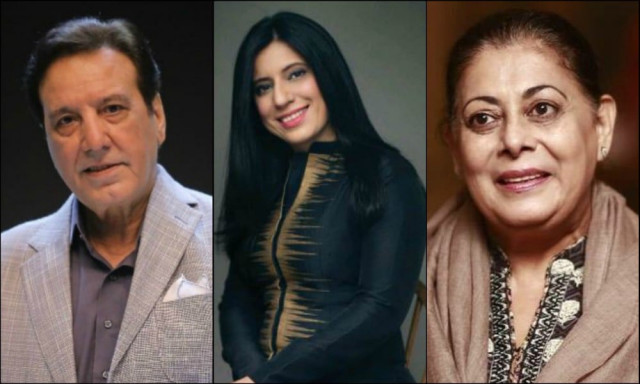
Making it big in the showbiz has never been easy for those without the right connections. But where they once faced just reluctance, the pandemic closed all doors for those industry insiders didn’t trust.
“Let them try,” said one prominent showbiz personality. “If they’re good enough, they’ll make it.” But everyone knows only a handful ever do, and that too after years of ‘paying their dues’.
To be fair, no profession can boast it has not been haunted by the spectre of nepotism. When it comes to film and television, however, many insiders insist its impact is overblown. Some even argue nepotism doesn’t exist in their business.
Still, we all know that our entertainment industry clings to a handful of names that have been up on the marquee for quite some time now. Although many of them undoubtedly deserve the applause they get, but neglecting the new talent places the fate of the industry in jeopardy.
Mahira Khan, Saba Qamar, Mehwish Hayat and Fawad Khan are perhaps a few among the limited list of celebrities who managed to make their mark onscreen without relying on familial or friendly ties. Still, the absence of Kapoors and Bhatts does not exempt the growing influence of Sabzwaris, Abbasis, Sheikhs, Mirs, Munawwars and Bashirs.
So as theatre actors resort to YouTube whilst A-listers make their way to bigger productions – helmed either by the people who cast them often or the channels that govern our creative media – a few household names discuss whether it’s ‘nepotism’ or ‘creative preferences’ that spin the reel of our television and film industry.
New, numbered and ‘neglected’
“Nepotism, favouritism, lobbying – they’re all branches of the same tree. Such acts of facilitating a few while neglecting the deserving others are not confined to blood relations,” a few television actors and theatre graduates told The Express Tribune while requesting anonymity.
“Star kids are granted quicker access and if they don’t know how to act, they are given enough chances to learn,” said another. “Acting has turned into the hobby of elites in Pakistan. So long as the system works in the favour of the ‘producing class,’ artists will always be neglected,” he stressed.
“The only reason I’m still working is because of hope,” chimed in another theatre graduate and actor. “I know people like us are grass-rooters. We come from nothing and grow with time. But the parachuters, those that come from above, have to get off their high horses someday.”
Taking names, one enraged ‘grass-rooter’ lamented: “Javed Sheikh’s children are casted repeatedly, regardless of their average performance. Same goes for Shahroze Sabzwari.”
“Recently I was watching this drama (Zebaish) produced by Bushra Ansari and I couldn’t believe that she had cast her entire family in it. It’s 2020, how can you still do that?” he asked.
All of them also called out major channels and their production houses for only recruiting from their own pool of actors, writers, directors and producers.
Actors, producers and ‘preferences’
Momina Duraid
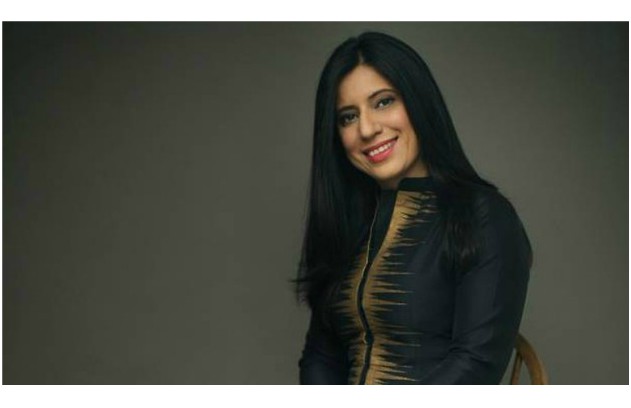
Senior producer of television network Hum TV and CEO of MD Productions told The Expresss Tribune that in-house production houses only preferred working with certain creative professionals for ‘quality control’.
“We have a few alliances with individuals we trust. But the criteria for making such alliances has nothing to do with their background or whether or not they’ve worked with other channels,” Duraid assured. She further elaborated on how the only requirement to build that relationship was for a filmmaker to bring in a brilliant script and an actor, to perform brilliantly.
“I have worked with surplus independent producers and brought several actors to the television forefront,” Duraid claimed. She recalled casting Sanam Saeed and Syra Yousuf when the former had just made her acting debut and the latter had never acted before. “Sajal Aly was also given the leading role in 2011’s Mastana Mahi, even though she had only appeared in a minor role in Geo TV’s, Nadaaniyaan,” said the producer.
Her list continued to grow as she recalled how Ayeza Khan also made her acting debut with a supporting role in a 2009 rom-com she produced, whereas Bilal Abbas made his acting debut with Duraid’s Saya-Deewar Bhi Nahi. And although Kubra Khan had already made her acting debut on the big screen with Na Maloom Afraad, she appeared on television with Duraid’s Sang-e-Mar Mar.
If that wasn’t enough, Duraid added that she recently introduced Ahmed Taha Ghani, Shehbaz Shigri, Sami Khan, Anmol Baloch and Ameer Gilani among others. “I even got Mahira Khan her first audition with Mehreen Jabbar after which she made her television debut,” said the Bin Roye producer. “She then starred in Humsafar – which by the way, was Farhat Ishtiaq’s first script that I approved because it was brilliant. The history of my production house is proof that nepotism cannot take charge here.”
But many would still deem the repetitive faces that come with the ‘easy casting’ or typecasting practiced on surplus channels, including hers, as the enablers of ‘nepotism’. Especially since simply introducing new faces to the fraternity never guaranteed their prowess or promised them leading roles.
“Nabbing the lead is a matter of performance,” remarked Duraid. “Yasir Hussain was also a theatre artist who worked his way up. Imran Ashraf did so many small characters before his performance as bhola brought him in the limelight. Ahad Raza Mir started with secondary roles even though he had studied theatre and was the son of a star. Ameer Gilani on the other hand, has been given the lead in Sabaat, regardless of him being what you’d call, an ‘outsider’ and a beginner” Duraid pointed out.
She went on to confess that the only evil letting nepotism breathe in our industry was lobbying. “When producers or channels start excluding artists for working with their competitors – that is when nepotism takes charge,” said Duraid. “But if someone is a personal favourite, it is either because of their public appeal, their team work, or their dedication to the character,” concluded the entrepreneur.
Javed Sheikh
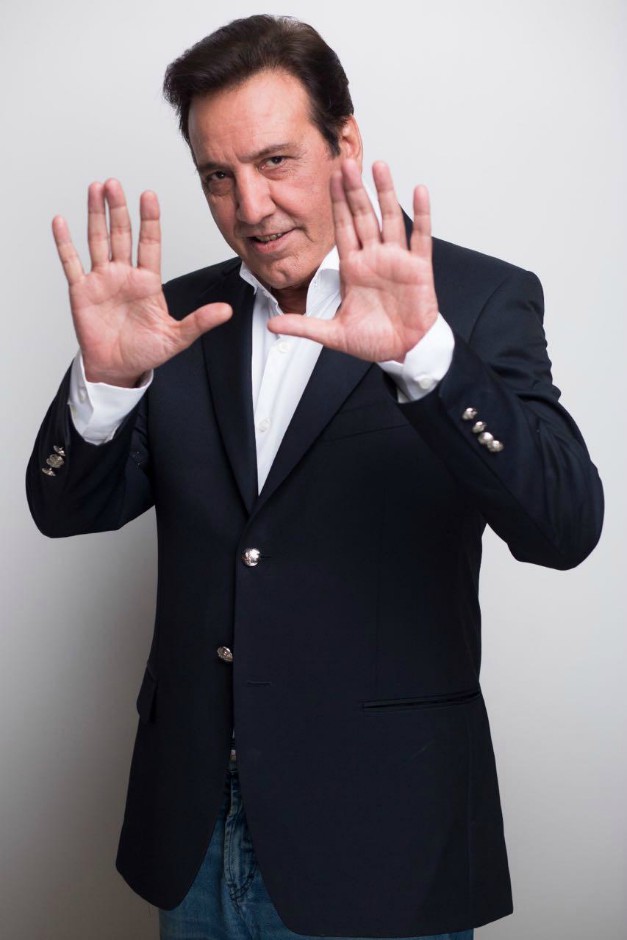
“Nepotism may exist in Bollywood but I don’t think it prevails here,” assured the actor, producer and director Javed Sheikh. Alluding to accusations of enabling nepotism by promoting his children, he said: “I’ve made seven to eight films so far and if I had to favour Shehzad, I would’ve done it. Especially with Wajood, since my entire family was after me to cast him. Instead, I gave Danish Taimoor the leading role.”
The producer is of the opinion that only actors who fail to nail good roles complain about nepotism. “It’s the easiest thing in the world to do – point fingers,” said the Wrong no. actor. “Production houses are always on a lookout. When I came in, there was nobody from my family and many of my films also flopped, but I didn’t give up. Actors today give up too easily,” said the star.
Yasra Rizvi

The versatile Yasra Rizvi, on the other hand, believes the nature of filmmaking is such that people tend to work in teams. But instead of justifying the repetition and typecasting prevalent in the media, Rizvi explained how it was the gatekeepers – the people responsible for casting – that “lacked the credentials to do so.”
“There are barely any auditions to begin with. And actors who are already popular are never tried for a role. This does not apply abroad. If Marlon Brando had to audition for Godfather, it means the filmmakers had their priorities in check,” she said. The actor reinstated how the system that should eliminate nepotism is absent in our industry. “There’s also a serious stereotyping of actors, if someone gets popular for a particular act, they will keep getting offers for different versions of the same.”
Rizvi opined that the same thing happens with our content. “Our actors become props that we package with cathartic narratives which only talk about women and their domestic issues – and rightly so – since the majority of our viewers are housewives. But that doesn’t mean we don’t have other stories to tell,” said the Senti or Mental director.
She reminisced how this was the same technique StarPlus used to gain popularity in its nascent stage – projecting stories of homemaking women leading luxurious lives in majestic bungalows whilst donning extravagant sarees, because “that was the lifestyle their women aspired to achieve.” On the contrary, filmmakers here know their audience will watch the young gori larki because everyone aspires to be her.
“We are a husan parast khitta,” said the producer.
And as far as casting real actors was concerned, Rizvi quipped how that was just a formality several fulfilled by offering them supporting roles. “If nepotism wasn’t profitable, no one would do it,” she remarked.
And what about star families, do they also influence productions? “They can’t,” she laughed. “It’s a small pond; everyone’s a big fish in a small pond.” Rizvi also believes that the act of producers casting themselves in the leading roles of their own films does not qualify as ‘nepotistic’. “I am the writer, director and actor of my own film and that’s fine because it’s an indie production,” she said.
Rizvi considers that when she is sellable, fits the role and can’t afford to pay another actor for working 16 hours a day like she would, then it’s justified. “Similarly, Humayun Saeed casting himself in his own films is a smart decision, because people want to watch him. Salma Hayek also co-produced Frida and starred in it too because being a Mexican, she was culturally appropriate,” concluded the Churails actor.
Nadeem Baig
“I wouldn’t call it nepotism. I think there are some people who understand your work better so working with them often becomes a creative preference,” renowned director Nadeem Baig told The Express Tribune.
“In my case, I work with Humayun Saeed a lot,” admitted the filmmaker. “I am not bound to but I know his potential and I believe certain actors deserve what they’re getting, even if it feels like a lot,” he added. Baig elaborated on how, even if nepotism seemed prevalent in our industry, it didn’t work. “In Pakistan, people who are cast without merit have a short shelf life,” remarked the Punjab Nahi Jaungi hit maker.
However, he did admit that certain channels prohibited the growth of independent producers by dictating their casting choices. “Every channel is on the same page when it comes to working with producers – be it Geo, Hum, Aaj or ARY. If they can’t dictate who you’re casting, they won’t distribute your film,” he alleged.
The Pyaray Afzal director further expressed how it was “more risqué” for indie filmmakers and independent productions to introduce new actors, especially on the big screen. Rizvi had also expressed similar sentiments except she believed that this responsibility lied with PTV.
“Experimenting with diversity to widen the audience’s scope, which would eventually change its perceptions and alter demands, is the job of our national television – not the private sector,” she relayed.
“It’s true, we don’t have enough roles to accommodate our actors,” reinstated Baig. “But that still doesn’t count as nepotism,” he argued. “The bigger problem right now is filmmakers churning out a 250 crore film in just a 100 crore. The bigger problem is the lack of funding from the government,” he concluded.
Vasay Chaudhry
“We are not Bollywood. Fawad Khan, Ali Zafar, Humayun Saeed, Atif Aslam, Mahira Khan, these are your most sought out stars with no one from the family in the business,” said the Jawani Phir Nahi Ani writer Vasay Chaudhry.
“Fahad Mustafa is the only person whose father was an actor but he wasn’t a big star either, so Fahad had his own share of struggles,” claimed Chaudhry as he leveraged to explain how the nepotism debate wasn’t relevant to Pakistan’s film and television industry. “Shahroze Sabzwari has been acting since he was in the 8th or 9th standard, so he has that familiarity factor with the audience,” added the writer.
Chaudhry went as far as recounting how there’s “added pressure on people with familial ties,” given the expectations attached to them. “Shaan Shahid is the only one who escaped that because of his talent. When Waheed Murad and Sultan Rahi’s sons came in, they were instantly rejected by the public so they left,” he recalled.
Upon acknowledging the plight of theatre actors, the Main Hoon Shahid Afridi writer elaborated on how the requirements of the stage and the screen were poles apart. “There is easy casting on television – nobody has the time for trial or teaching. And even you’re casted for your relationship with someone, you get one chance. If you bring in the numbers, you’ll be called again,” he said.
Debunking further claims of only glitz, glamour and a particular class making it across the board, Chaudhry provided examples of Nayyer Ejaz and Gohar Rasheed. “Nayyer Ejaz also made it with just his craft, and Gohar was spotted by Humayun who saw his performance in theatre and decided to cast him in Main Hoon Shahid Afridi.”
He stressed on the fact that looks mattered but not more than acting, whereas popularity was a variable. “Ali Safina, Uroosa Siddiqui, Sana Askari, Mohsin Abbas Haider, all these people were theatre actors who started small, but didn’t give up and have now earned their place in the industry.”
Adnan Siddiqui
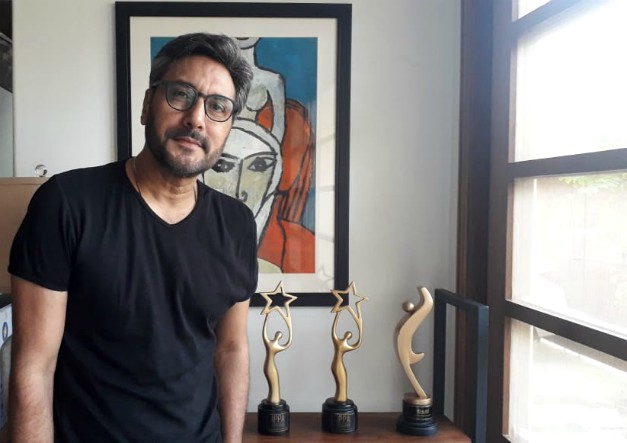
“Why do you want to talk about nepotism? What about the blue-eyed boys and favouritism?” asked popular actor and producer Adnan Siddiqui. “I think more than nepotism we face favouritism. Some directors only want to work with certain actors and vice versa,” he argued.
Except, the prior wouldn’t exist without the latter, “I guess you can call them siblings,” Siddiqui agreed. “But to be honest, there’s nothing wrong with having a preference either,” he added, on the condition that the person fits the role and is “cast on merit.”
But does that happen? Is the question, “It’s about the TRP’s, if they’re bringing in the numbers they’re bound to stay,” he said. But the Cereal Entertainment CEO is of the belief that even if someone does not bring in the numbers at first, they should be given another chance.
“One example; I’ve just produced a film called Dam Mastam and I could’ve starred in it too, but I casted Imran Ashraf because he was a better fit and a brilliant actor,” said the Meray Paas Tum Ho star.
Dam Mastam was supposed to release this year had the pandemic not erupted, but the upcoming film will mark Ashraf’s big screen debut after nine years of his hard work on the small screen. The Ranjha Ranjha Kardi actor would be starring opposite Amar Khan, who, unlike him, made her acting debut only recently with a 2017 MD production Bad Gumaan and is the daughter of veteran actor Fariha Jabeen.
However, that does not take away from the fact that Khan has also studied theatre and film while Siddiqui’s production will be her first cinematic venture.
The giver of chances, Siddiqui, provided another example, “I also recently gave a chance to Mohsin Abbas Haider. He did something, which first of all shouldn’t have been in the papers,” opined the MOM actor. “But that’s a debate I don’t want to get into. I just feel that by depriving someone their livelihood you are making them a patient of repression.”
He then expressed how art should be separated from the artist. “I was reading Bilal Ashraf’s statement the other day, ‘art has no boundaries.’ My brother, art has no boundaries but artists do,” he laughed.
Faisal Qureshi
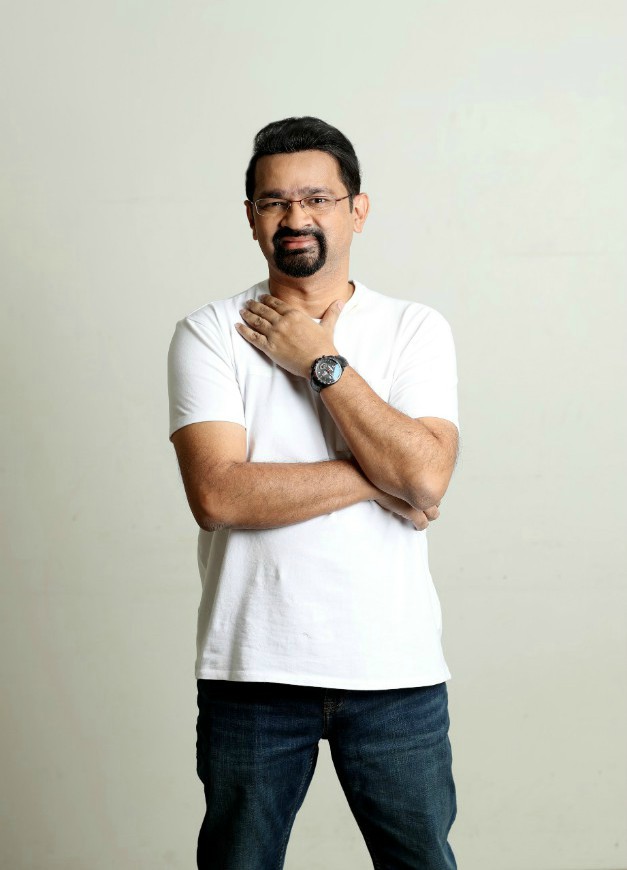
Producer Faisal Qureshi however, claims he has never been a victim of nepotism and adds that actors nowadays cannot say they were sidelined because they have so many platforms.
“I was dragged from NCA’s theatre to television. I never had to use a source, I just performed and professionals noticed. Even after I started producing I never brought anyone from my own family,” said the Teefa in Trouble actor.
But as far as star kids being provided an easier access was concerned, Qureshi admitted that even if that is the case, there is an explanation for it. “I’m not saying acting is genetic, but I do believe there are those who need to learn the craft, like I did, and those who are naturally good at it.”
Speaking along the lines of nature verses nurture, Qureshi remarked that children who are exposed to the craft since childhood, especially through their family members, are bound to passively or actively learn it. However, he confessed that that does not guarantee they’ll be as good as their seniors, “they could do better or worse.”
“I wouldn’t call it nepotism if a star kid is getting the roles he deserves,” said the Money Back Guarantee producer.
But what about a certain actor who suddenly pops up on the big screen after his artist wife turns producer? Ehen! Or that younger sister who earns fame in her later years for being related to a renowned veteran, following which her daughter also appears on television – after studying in a liberal arts university, of course. That access alone can change lives.
Qureshi admitted that he has witnessed many bigwigs trying to lure their family members into big productions, but assured that “nobody pays heed to them if their performance is bad.”
Furthermore, he explained how it was wrong of producers to cast themselves in the leading roles of their own projects, “Your project shouldn’t be designed to make you a star, with a character only you can play. The actor molds for the project, not the other way around.”
Gohar Rasheed
Self-made and self-sufficient, Gohar Rasheed asked for nepotism to be separated from lobbying or favouritism. “No matter how deserving an employee of his may be, the business man will still rely on his son to carry on his legacy,” Rasheed told The Express Tribune.
He went on to claim that the only thing nepotism could do for people was give them a head start, “but moving forward, no matter how good looking you are or who you’re related to, nobody will cast you if your performance isn’t up to the mark.”
Rasheed recalled how his first job in the industry was that of a line producer at Hum TV, “that’s just one rank above a spot boy,” he laughed. “It’s true the star kids don’t have to go through that grind but they have their own struggles,” he confessed.
The Legend of Maula Jatt actor revealed how Sultana Siddiqui had given him a job completely on merit after which Humayun Saeed spotted him in a theatre play and offered him a role.
“The biggest problem of our industry at the moment isn’t nepotism, it’s the fact that it does not exist on paper,” he relayed. Rasheed expressed how productions could not contribute to the GDP because they were privately run and not government funded – leading to an extremely sponsor and viewership dependent industry.
“And even if nepotism exists in the subtle way that it does, it’s up to you how you break through,” remarked the energetic and optimistic Rasheed. “Look at Imran Ashraf, Sajal Aly, Iqra Aziz, even Humayun Saeed – all these actors have made such a strong place for themselves and they don’t come from a family of influence,” he added.
“Forget everyone else, if I can make it, anyone can,” the Mann Mayal actor assured. “I had to go through rejection, hustle, hard work, persistence, more rejection, tears, conviction, but I pulled up my socks!”
He even explained how a persistent artist does not stop, regardless of the ordained standards of beauty. “I’m not fair complexioned, I have scars on my face, I come from nothing, no contacts. But my work spoke for me.”
Rasheed recalled reading what Bollywood actor Nawazuddin Siddiqui’s mother had said and quoted, “Beta, kachra bhi aik time ke baad apni jaga badal leta hai.”
As for casting new actors in the leading roles was concerned, Rasheed opined how that was too farfetched for indie productions. He went on to deem the casting of new faces in the supporting roles a ‘smarter move’ given that they could share the spotlight of the actor in the lead.
“Case in point, it was Mahira’s good will that she shared her spotlight with Bilal Ashraf in Superstar, it gave Bilal the push he needed.”
Veterans and words of wisdom
Simi Raheal
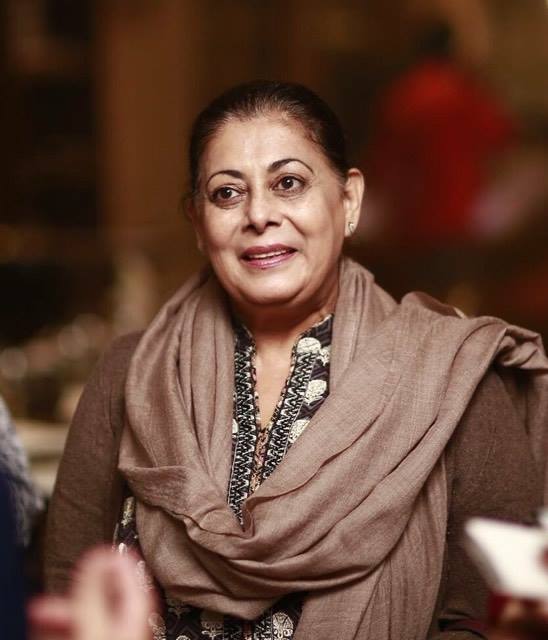
“If you look up online, you will see that nepotism is when people in a position of power use their influence to facilitate those close to them, irrespective of merit,” veteran actor Simi Raheal told The Express Trubune.
“I, for one, haven’t been a victim of nepotism but my children have. My kids know that I’ve worked on the peripheries of this industry so they never ask me to speak on their behalf. But I see people do that all the time,” she confessed.
Raheal has made decades of artistic contributions to Pakistan’s entertainment industry and recently even started her own YouTube channel, Notty Nani. The Ashk actor is mother to Mehreen Raheal and Daniyal Raheal.
The prior started off her career as a model and then ventured into acting while the latter is still a struggling actor. “If I ask someone why they refused Daniyal a role that I feel he deserved, I’m told that he didn’t have the ‘face for it,’ or is too ‘burger’. That excuse alone tells me his talent and years in theatre, are often disregarded,” she remarked.
Being an educationalist, Raheal also often sends her students to various channels and MD productions even casted two of them recently, but “eye balls mattered most,” she said. “I’ve had producers tell me to caste people with a greater following on social media, irrespective of their talent,” chided the actor.
As an example, Raheal addressed how Aiman and Minal Khan even made it so big. “They’re good actors, but we certainly have better ones out there,” confirmed the senior.
Samina Ahmad
Veteran actor Samina Ahmad also expressed how more than nepotism, there was favouristism, but that was because the nature of work is ‘trust dependent.’
“You often prefer working with people who understand your artistic interpretation of the script,” she said. “And we are also dependent on that commercial element.” The producer stressed on how mainstream productions were for your mainstream audience, not the niche. Thus, the people’s favourite becomes the producer’s favourite. And if he or she is cast along with other newer names, then they also get a chance at fame because of the increased viewership their fellow leading actor is bringing.
“Furthermore, when a new person comes, you have to explore them. What is expected of star children from the beginning is that they have an understanding of the requirements. So, yes, it’s easier for them to break in. But whether they are able to continue or not, depends on whether they pull the crowd,” she confirmed.
The Suno Chanda actor further elaborated on how it was not just the looks, but an actor’s body language, voice, way of talking and charisma that also mattered. “It has a lot to do with how presentable you are as well since your audience is observing you. There has to be a reason why an actor is being cast repeatedly, and whether you like it or not, that reason is usually because he is or she is being watched.”
Although she still confessed that channels often refrained from investing time or money into new talent and discouraged independent producers from casting them, but taking the channel’s perspective into account, Ahmad restated how “they heavily relied on traffic to pay back their sponsors.”
“There are far too many things to consider,” she said, speaking realistically. Ahmad provided a lowdown of the things a channel or a producer need to keep in check, including censorship laws which often prevented better content from being aired or screened. “Better content can allow a diversified cast. But the censor boards' opinions matter, otherwise, you know what happened to Sarmad’s film, right?” recalled the maven.
She relayed how a channel also had to keep the advertisers in mind and the age group they wanted to attract, “so they produce content for that age group only.” Among other inhibitions, Ahmad expressed how casting new faces in a film was even more risqué. “Your audience is paying to watch that in a cinema, and if they don’t like it they will complain. Not to mention, unknown faces never pulled crowds, how will you please your distributors if it doesn’t sell?” questioned the senior.
An enabling audience
Call it nepotism or favouritism, the model cannot sustain itself in a market-driven economy. If the ill plagues our entertainment industry then at least some of the blame lies with us, the consumers. The viewers are the ones that demand to see the reign of seasoned veterans continue. They are the ones still willing to bank on the tried and tested and those related to them.
In the meantime, PR strategists build hype around the debuts of would be artists with powerful ties with articles, blogs and interviews. A recent listicle, for instance, named Faisal Qureshi’s daughter, Hanish Qureshi, Ahad Raza Mir’s younger brother, Adnan Mir, Nauman Ejaz’s son, Zaviyar Ejaz, Nida and Yasir Nawaz’s daughter, Sila Yasir, Sarah Khan’s sister Aisha Khan and Shehryar Munawar’s brother Manoucheher Siddiqui as ‘potential stars waiting to break out’.
The present system, or lack of it thereof, surely contributes to keeping those without connections out of the entertainment industry. Due to several limitations, the industry will be discouraged from experimenting with both talent and content. As a start, however, the private sector could and should employ some gatekeeping mechanisms to level the playing field. Regular auditions, at the very least, could be a step towards making questions about whether someone else better suited a certain role or not.



















COMMENTS
Comments are moderated and generally will be posted if they are on-topic and not abusive.
For more information, please see our Comments FAQ